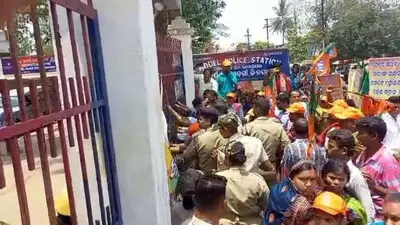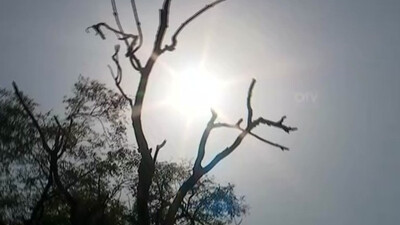Recommended Stories
The CPI(M) said Finance Minister Pranab Mukherjee promised to bring in or amend seven legislations to liberalise the financial sector and attract FDI which the UPA-I government could not do because of Left opposition.
"These measures would provide greater access to foreign finance capital to domestic financial sector which will be disastrous. Removal of protection to domestic sector will lead to its increased dependence on foreign markets and their volatility will impact us," senior party leader Sitaram Yechury told reporters here.
While direct tax concessions of Rs 11,500 crore have been given to primarily benefit the corporates, a hike of Rs 11,300 crore through indirect taxes would affect the vast masses of people, he said.
He said the government voluntarily did not collect taxes worth Rs 1,38,921 crore from the corporates in 2010-11.
Similarly, the tax foregone in 2009-10 was Rs 1,18,930 crore.
"The government has thus given away about Rs four lakh crore in the last three years," Yechury said, adding if this amount was collected and spent on building infrastructure, it would have generated employment and thereby domestic demand by increasing the purchasing power of the people.
On corruption, he said there was nothing concrete on the blackmoney issue barring "an intention of joining the global crusade" against it. "This falls short of even what has been promised in the President`s address to Parliament," he said.
On the other hand, there has been no mention in the budget on rolling back the hikes in petro-product prices and nothing on banning or even suspending forward trading in foodgrains.
Both these issues would have had a major impact on prices of foodgrains and other essential commodities, he said.
While the current food stock in government godowns was "double than the buffer norms, there is no mention of releasing this excess stock through PDS to the states".
CPI leader D Raja described the budget as the Congress-led government`s commitment to strengthen crony capitalism and said it has failed to address concerns like inflation, growing inequalities, poverty and unemployment.
The thrust of the budget was financial sector liberalisation, inviting FDI in banking and insurance sectors, disinvesting PSUs and giving all concessions to the private sector, he said.
While not much was given to agriculture, the proposal of direct cash transfer of subsidies "is an untested experiment in India and is expected to be dangerous for rural economy", Raja said, adding that it would not benefit small and marginal farmers at all.
On the social sectors, Yechury said while subsidies to the poor under various schemes had been reduced by over Rs 30,000 crore, those on agriculture went down by Rs 4,000 crore and on rural development by about Rs 300 crore.
"There has been a physical contraction of expenditure on the social sector", the CPI(M) leader said.
Expenditure on health stands at about one per cent of GDP, instead of three as promised by the UPA, about four per cent on education instead of the promised six per cent, he said.
On the gap of Rs three lakh crore between the overall expenditure and revenue in the budget, Yechury said "the government plans to meet this gap by borrowing. This is unheard of and is as good as deficit financing. It is borrowing but not collecting tax."
CPI leader Gurudas Dasgupta said the Budget was "directionless" and did not reflect any seriousness of the Government in addressing the issue of unemployment or keenness in mopping up additional resources and taxing rich people.
In a statement, the CPI(M) Politburo said, "the Budget reflects the abandoning of the aam admi agenda by the UPA-II Government and its pursuit of an aggressive neo-liberal agenda."
When people were suffering due to relentless rise in food and fuel prices, the massive Rs 20,000 crore cut in major subsidies on fuel, fertiliser and food, from what was spent in 2010-11 has come as a "rude shock", it said.
"The cut in food subsidy by Rs 27 crore clearly exposes the Government`s lack of willingness to enact a meaningful food security legislation," the CPI(M) said.
It said the direct cash transfer programme announced for implementation from next year was "a smokescreen for this subsidy cut. The current BPL lists exclude large sections of the country`s poor."
Maintaining that no concrete steps to unearth the huge sums of black money stashed in offshore tax havens were announced, the CPI(M) said the Double Taxation Avoidance Agreement with Mauritius, through which 42 per cent of FDI inflows into India is routed, is the biggest conduit of tax evasion by MNCs and Indian corporates.
"Rather than plugging such channels, the Finance Minister is signing more tax avoidance treaties with other countries," the party Politburo said.












